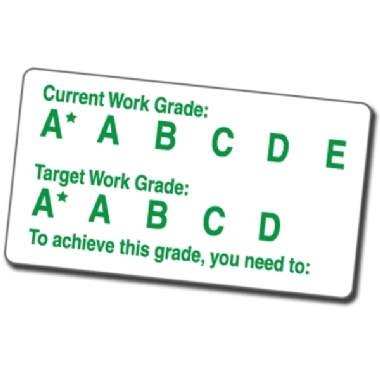
Target setting and pupil tracking can distract teachers and pupils from what they are meant to be studying. By being concerned about grades over and above learning many teacher pupil conversations can avoid talking about the things themselves. When there is an over-emphasis on the marking criteria, where it replaces the thing being learnt, teacher and pupil can spend many a fruitless hour trying to decipher what marking criteria might mean and whether the pupil is achieving a target guessed at by the teacher, especially in a climate where many of the exams being taken are new.
For fun, I thought I might look at this through a phenomenologist’s eye. The philosophy of ‘phenomenology’ is described in the Stanford Encyclopaedia of Philosophy in the following way:
Classical phenomenologists practiced some three distinguishable methods. (1) We describe a type of experience just as we find it in our own (past) experience… (2) We interpret a type of experience by relating it to relevant features of context… hermeneutics, the art of interpretation in context, especially social and linguistic context. (3) We analyze the form of a type of experience. In the end, all the classical phenomenologists practiced analysis of experience, factoring out notable features for further elaboration.
Let us imagine three conversations and look at them from the point of view of the people involved in the conversation:
Scenario One:
Teacher: You have fallen behind on your target grade. You should be getting a B, but in your last essay you got a D. This isn’t good enough.
Pupil: I know sir, I’m sorry, I had a lot of work to do in other subjects and I wasn’t able to put the time into the essay I should have.
Teacher: OK, next time, come to me if you need an extension.
Scenario Two:
Teacher: You have fallen behind on your target grade. You should be getting a B, but in your last essay you got a D. This isn’t good enough.
Pupil: I know sir, I’m sorry, what should I have done to make my grade higher?
Teacher: Let us look at the mark scheme. You should have ensured that, for what I estimate a B might be… Ummm; that you should have expressed “ideas coherently and with development.” Whereas you presented “ideas with some clear topics and organisation.” If you really wanted to assure a B grade and, maybe, aim higher you might want to: “express ideas with sophistication and sustained development.”
Pupil: Can you give me examples sir?
Teacher: Er… yes, well, whilst you have been clear, you haven’t been coherent… Is that clear?
Pupil: Er… I think it’s clear sir, but I’m not sure if it is coherent.
Teacher: Let us settle this by looking up coherent and clear in the Oxford English Dictionary…. Right… coherent means logical and consistent, is that clear? It’s often useful to look at the synonyms… logical, reasoned, rational, cogent, clear… ah, yes so… anyway, is that clear?
Pupil: I’m not sure sir.
Teacher: Right, well let’s look up ‘clear’. Well, this is clear: ‘Easy to perceive, understand, or interpret.’ Whereas to ensure higher grades you need to be logical and consistent.
Pupil: What are the synonyms, sir, for clear?
Teacher: Ah, they are: understandable, comprehensible, clearly expressed, logical, lucid, clear-cut, coherent… right, ok is that clear? Look, forget this, for the highest achievement you need to: express ideas with sophistication and sustained development…
Pupil: What do you mean by sophistication sir?
Teacher: DICTIONARY corner, here we go: It means you are ‘aware of and able to interpret complex issues’.
Pupil: Should I do that clearly or coherently sir?
Scenario Three:
Teacher: Ok, it seems you do not quite understand something about the texts we are studying, let me explain it to you…
(later)
Pupil: Thank you Miss, Sir keeps going on about targets and mark schemes, confuses the hell out of me. What I like about you is you address the things themselves. I know what I could write now. (turns to leave, looks back…) by the way, what do you think of…. etc.
If we look at the intention of each scenario, then all three have the same end in mind which is that the pupil improves, but only one, the third, is clear enough in this intention. Scenario one avoids all discussion about the topic and, in this fictional case, the pupil was lying. In scenario two there is no coherent discussion about the topic being learned. Scenario three addresses the topic. It is only when the pupil knows what they are talking about that they could hope to decipher what the exam board is asking for. If the pupil knows their stuff and they know how to write an essay properly (which should have been taught to them throughout their schooling) it should be relatively easy to cope with an exam question and certainly without having to unpick exam criteria all the time.
Leave a comment